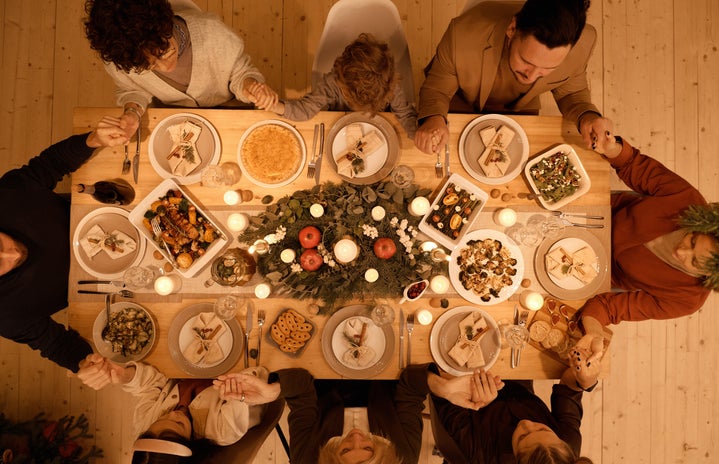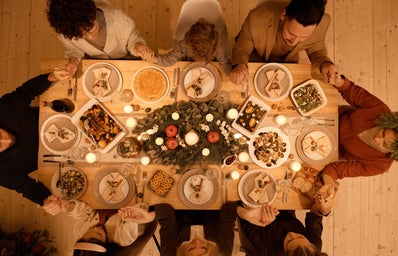As spring rains in and April approaches its midpoint, Eid is celebrated and the month of Ramadan comes to a close. This year, I decided to participate in Ramadan as a Non-Muslim Black woman. This definitely raised a few questions from my typical crowd, which I happily answered to the best of my ability as a learning woman.
I have was raised into Christianity, so I won’t pretend to know the ins and outs of being Muslim, but to my understanding the month of Ramadan is one of the holiest months created to celebrate the creation of the religious text for Islam which is the Quran. Ramadan is all about fasting from the things that satisfy the flesh, which to me sounded similar to Christians idea of “worldly things.” The fast is most commonly known for your inability to eat or drink during the hours from sunrise to sunset. This is of course, one of the most important factors of your fast, but not the only one. During this time you are told to also fast from sex, alcohol, gossiping, lying, sparking negativity, arguing and even listening to vulgar music.
At first it seemed like a lot, considering in 2024 everything fun to do involves food, sex, bad music and gossiping. But after self reflecting, I realized how unhealthy and almost depressing it is to have so much of an attachment to such blasphemous behavior. Even for non-religious people, you can understand how your behavioral habits are a direct derivative of your life outcomes. Therefore, if you want to have better outcomes, change your behavior. The most challenging thing for me to change was definitely my eating habits.
This year’s calendar marked the start of Ramadan as the evening of Sunday, March 10th, 2024. Which for me, an Old Dominion University (ODU) student, was the night before the return to reality after a week-long spring break in Puerto Rico. I returned to a stressful week of spring semester midterms, which left me wanting a tequila cranberry and some of my favorite comfort foods. Needless to say, the first week was the hardest week. I can count at least 100 instances of me opening the refrigerator just to have to force it back closed, because the sunlight was still peering over my shoulder. Yet, the completion of the first week taught me the most important thing I needed to know, which carried me through the remaining three weeks: I am capable of anything I set my mind to.
During this time, Muslims are fasting to learn self control and discipline, get closer to God, express gratitude and have empathy for the people who are less fortunate. A chance to self reflect and align yourself morally. So in my decision to take this on, these were the benefits I was wanting to gain from. Along with some other personal physical goals concerning my eating habits.
Indulgence, more specifically overindulgence, has always been something I have struggled with. I am a chronic binger, whether it be in regards to eating, drinking or sitting in front of a television. Overall, I am a pretty self aware person who can admit to my lack of discipline and the negative effects it has on my life. Such as the constant yo-yo of weight gain and weight loss, or the lackluster grades I receive from my inability to force myself into doing my schoolwork on time; a problem I have been extremely desperate to overcome, but lacked the motivation and confidence in my ability to succeed. I always thought Ramadan was such an interesting practice, and thought, “I don’t know how they do it, I could never,” so to see myself complete it, as a person who never sticks with anything, was such an accomplishment for me as well as a testimony to the impact of disciplining yourself for the greater good.
Before the fast, I always was a person that only prayed when I needed something or happened to remember to, and I always hated that about myself. No one wants to answer to a person who only calls for favors. One thing I accomplished during Ramadan was the growth in my prayers in both quality and quantity. I was praying more often to where giving thanks became a habit, and I became more intentional with my prayers so it didn’t feel like a chore to speak to God. My faith grew exponentially during the month making me so gracious for taking on this challenge. Even now writing this on the last day of my 30 day experience, I can’t complain about a thing. Any inconveniences I may have experienced were minuscule and not worth remembering or notating. To whom I have no one else to thank for but the most high.
Gratitude is another of the important experiences I encountered. Abstaining from food and water makes you so much more appreciative when you receive it. My mind constantly traveled to the people whom fasting may not be an option for. When I felt sorry for myself when struggling to make it through the day without a drink of water, it reminded me of the people in other countries who don’t have access to clean drinking water at all. A lot of non-Muslim American people who celebrate Ramadan do it to take a step back from the constant greed and consumerism we contribute to daily. For me this greed also translated into my material things, I have a surplus of clothes I buy and don’t wear that just end up sitting in my closet. So I took it upon myself to give away some of my clothes to the less fortunate during this time. I produced at least two full trash bags of clothes and many items with the tags still on them. This made me feel bad not only because it’s a waste of my own money, but other people could’ve gotten use out of the items I’ve hoarded. The children who I gave the clothes to were so grateful to receive the clothes that I considered outdated and ugly, which really translated to a point of reflection for me. It let me know I was doing the right thing
Aside from the less fortunate, I grew a larger respect for the Muslim community now having a shared experience with them and learning Ramadan’s true difficulty. Muslims subject themselves to this tradition every year, and to me, that is a powerful thing to do.
Some people may argue and say “It can’t be that hard to do,” but everyone has different levels of discipline. We also live in environments filled with temptations. For example, this campus where meals are just a swipe away, or the restaurant I work in where I’m surrounded by every food and drink you could imagine. Even my weekly family dinners where I had to choose between sacrificing spending time with them because they weren’t fasting, or watching everyone else eat and not become tempted to do so myself. Also, the consideration of having a partner not on the same journey as you and abstaining from sexual acts with them for an entire month. There are several factors that make Ramadan not the easiest feat, but if you disagree, try for yourself and get a first hand experience of the changes it inflicts. It may be more than you expect.
One of my main goals during this fast was to learn and appreciate another religion. I am incredibly blessed to have been able to do so. Although I don’t identify as Muslim, the time I spent engaging in daily prayer and getting closer to my faith demonstrated the true power in this holiday. I can confidently say that I reaped so many blessings from practicing Ramadan and was able to add another amazing month to the books of 2024!


